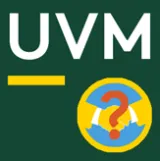As we begin a new semester, it is important that all employees (faculty, staff, temporary employees) and graduate students in roles such as teaching/research or who receive stipends, be aware of UVM’s compliance program and of our shared responsibility to continually build upon and improve UVM’s culture of compliance. The cornerstone of your compliance program is the Code of Conduct and Ethical Standards (the Code). The intent of the Code is to communicate the principles and standards that the university has identified as most relevant to the university's stated values, Our Common Ground.
Please review this information carefully and if you have any questions, reach out to the contact person listed in the policy. Alternatively, you can always email the Office of Compliance Services (email link) directly if you have questions.
Learn more about the Office of Compliance and Privacy Services

Compliance Program Important Links
You can find more information about your compliance program by clicking the “Learn More” button above. Here are a few additional important links:
Code of Conduct and Ethical Standards Our Common Ground Whistleblower Policy: Reporting, Protections and Non-RetaliationWhile the Code identifies those policies that are most relevant to Our Common Ground, UVM’s institutional policies and procedures extend beyond those identified in the Code. All members of the university community need to be familiar with those policies and procedures applicable to their roles. A full list of UVM’s policies and procedures can be found on the Institutional Policy Website.
Here are some policies that everyone should know about:

Conflict of Interest and Conflict of Commitment
According to UVM's Conflict of Interest and Conflict of Commitment Policy, all UVM employees, whether full-time or part-time, whether faculty, staff, administrators, or others identified by the President, are required to disclose potential conflicts of interest/commitment as they arise.
All exempt staff (salaried) and all faculty involved in sponsored research are required to file an annual conflict disclosure form using UVM’s electronic disclosure system (UVMClick).
Faculty not involved in sponsored research currently have the option to either disclose in UVMClick or disclose using another approved method (check with your chair or dean).
Non-exempt staff (hourly) do not use UVMClick but are still required to disclose potential conflicts to their manager or supervisor prior to entering into an arrangement that could pose a conflict.
Examples of potential conflicts and individual requirements are outlined in UVM’s policy. More information can be found on UVM's Conflicts of Interest webpage.

Safeguarding Personal and Protected Information
(Data Privacy and Information Security)
UVM has established controls to safeguard all types of university information that includes non-public protected data (NPPD). If we are collecting, accessing, using, disclosing, or storing university information, especially if that information is NPPD as defined in UVM’s Privacy Policy we must do our part to protect it.
Do you know whether the data you collect is at high-risk? If you don’t, you should take a moment to review UVM’s Data Classification Matrix (PDF). Controls and safeguards include those specified in UVM’s Computer, Communication, and Network Technology Acceptable Use Policy, Privacy Policy, Information Security Policy and Information Security Procedures. All members of the university community who have access to university information and systems are responsible for the proper handling of this information.
For more information, visit UVM's Privacy Program webpage and UVM's Information Security webpage.

Protection of Minors & Vulnerable Adults
The University of Vermont hosts, sponsors, manages, and oversees events and programs in which minors and vulnerable adults take part. The university must provide a safe environment for those minors and vulnerable adults while they are taking part in these programs. As such, UVM has established policies and procedures that set forth requirements related to programs involving minors and vulnerable adults.
One of these requirements is that anyone who is responsible for the care, custody, and control of one or more minors/vulnerable adults must undergo a background check (fingerprint-supported for minors, HR initiated for vulnerable adults) and must complete training prior to their involvement in the program.
In addition, depending on the nature and scope of the program, there may be other contractual or notification requirements. If your department, division, school, college, unit, or program interacts with minors or vulnerable adults, you are responsible to meet UVM’s policy requirements. See Protection of Minors, Minors, Reporting Abuse or Neglect of and Crimes, Minors in Laboratories, and Vulnerable Adults, Reporting Abuse, Neglect or Exploitation of, and Crimes policies and procedures.

Need to report a compliance or ethics concern?
Report suspected workplace compliance, ethics, or policy violations with ease using the Ethics and Compliance Reporting and HelpLine.
For all other reports, visit UVM’s Campus Reporting Portal.
Policy Spotlight
Americans with Disabilities Act (ADA) & Equal Opportunity
Did you know that UVM has an online form for reporting accessibility barriers? Go to UVM’s ADA webpage and click on “Report an ADA Barrier”.
As it relates to equal opportunity, remember that all public materials, whether web, print, or non-print, must contain UVM’s reasonable accommodation statement and non-discrimination language. If you are responsible for updating your unit’s website, if you send out electronic newsletters or other materials, whether via email, the internet, or the regular mail, make sure that these statements are included.
If you’re not sure, contact UVM’s ADA/504 Coordinator (email link) for more information.
Hazing
The Stop Campus Hazing Act is the new federal law requiring all institutions of higher education that receive federal student aid to report hazing incidents and information on student organizations that violated the school's anti-hazing policy in their annual security reports and on their websites, effective January 1, 2025. This law provides a federal definition of hazing and strengthens national transparency and accountability to help prevent future tragedies.
For more information, visit UVM’s Title IX and Sexual Misconduct website.
Combatting Human Trafficking
The U.S. government has implemented a zero-tolerance policy prohibiting trafficking in persons, including sex trafficking, forced labor, and related activities. As recipients of federal funds, either directly or through subcontracts or subawards, the University of Vermont is obligated to ensure that employees and contractors are informed about these regulations. While individuals working on research may be more likely to encounter potential red flags, these rules apply to everyone. Human trafficking can be suspected in many contexts, and anyone who suspects it must report it.
For more information, visit UVM’s Combatting Human Trafficking website.
